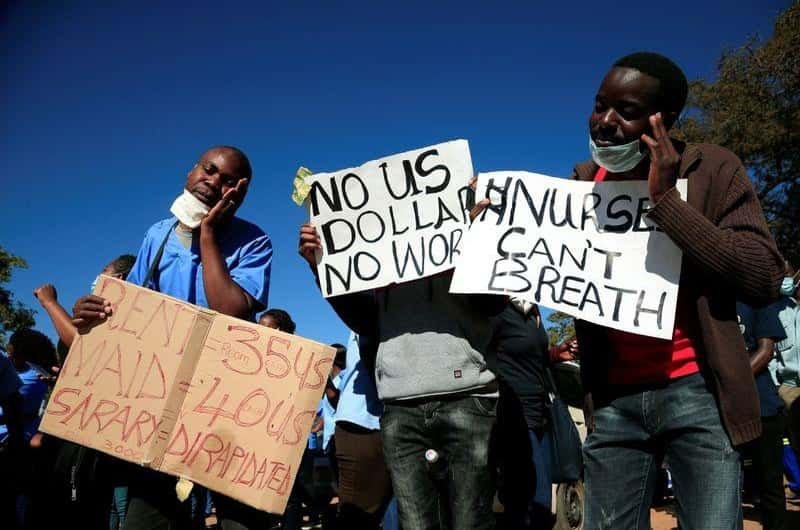×
The Standard e-Paper
Smart Minds Choose Us

Police in Zimbabwe arrested 12 nurses protesting outside state hospitals on Monday demanding to be paid in U.S. dollars as inflation running at nearly 800% was eroding their salaries, the country’s nurses’ union said.
An economic crisis under President Emmerson Mnangagwa has revived memories of the hardships of more than a decade ago when hyperinflation wiped out savings and pensions and forced the country to dump its currency in favour of the U.S. dollar.